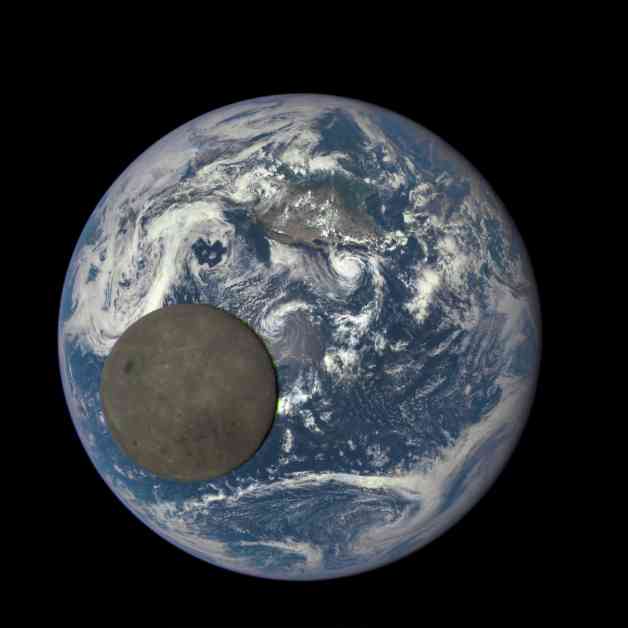A Race Against Time: The Moon’s Potential to Save Earth
In an era where the threats to our modern culture and the survival of humanity loom large, can the Moon provide a beacon of hope in our darkest hour? The concept of storing copies of our greatest scientific discoveries, cultural masterpieces, and more in the safety of a world a quarter of a million miles away might just be the key to safeguarding our collective knowledge for generations to come.
First Steps Towards a Galactic Backup
The first steps towards this ambitious mission have already been taken. The Intuitive Machines robotic Moon lander, Odysseus, made history by touching down on the lunar surface in February 2024. Aboard this craft was a data storage unit designed by Florida data startup Lonestar Data Holdings, offering “off-planet disaster recovery services” with a series of advanced data centers on and around the Moon.
Lonestar’s CEO, Chris Stott, drew inspiration from a real-world cyber-attack in 2017 that nearly wiped out crucial data in Ukraine. This incident highlighted the vulnerability of our digital infrastructure and the urgent need for secure backups. By testing data storage in space since December 2021, Lonestar aims to protect the world against future catastrophic data losses.
A Vision for the Future: Lunar Data Centers and Beyond
The success of transmitting digital copies of historical documents like the Declaration of Independence to and from the Moon has paved the way for even bolder missions. Lonestar’s upcoming plans involve launching a full data center to the Moon in the first quarter of 2025, marking a significant milestone in off-world data storage.
But the ambitions of Stott’s team don’t stop there. They envision creating a “living, breathing digital twin of the entire planet,” with lunar orbit data storage spacecraft in the works from 2027 to 2031. By utilizing lunar lava tubes as natural data storage facilities, Lonestar aims to establish a secure and efficient backup system for humanity’s collective knowledge.
A Galactic Archive of Human Knowledge
While Lonestar focuses on lunar data storage, the Arch Project is exploring a solar system-wide archive of humankind’s knowledge. With the recent launch of a library aboard Elon Musk’s SpaceX Tesla, the Arch Mission Foundation Initiative aims to create a billion-year archive of libraries spread across the solar system.
The Moon’s potential doesn’t stop at digital data storage. It offers a unique opportunity to establish off-world seed repositories for Earth’s plant life and DNA storehouses for endangered species. By leveraging the stable, cold temperatures of the Moon’s south pole, researchers hope to preserve the genetic diversity of our planet’s rarest creatures for future generations.
In the race against time to safeguard our planet’s biodiversity and technological advancements, the Moon emerges as a crucial ally. With innovative projects like Lonestar’s lunar data centers and the Arch Project’s solar system-wide archive, humanity is taking bold steps towards securing a brighter future for all. Let’s look to the stars and the Moon for inspiration in preserving our shared heritage and ensuring a sustainable path forward.











